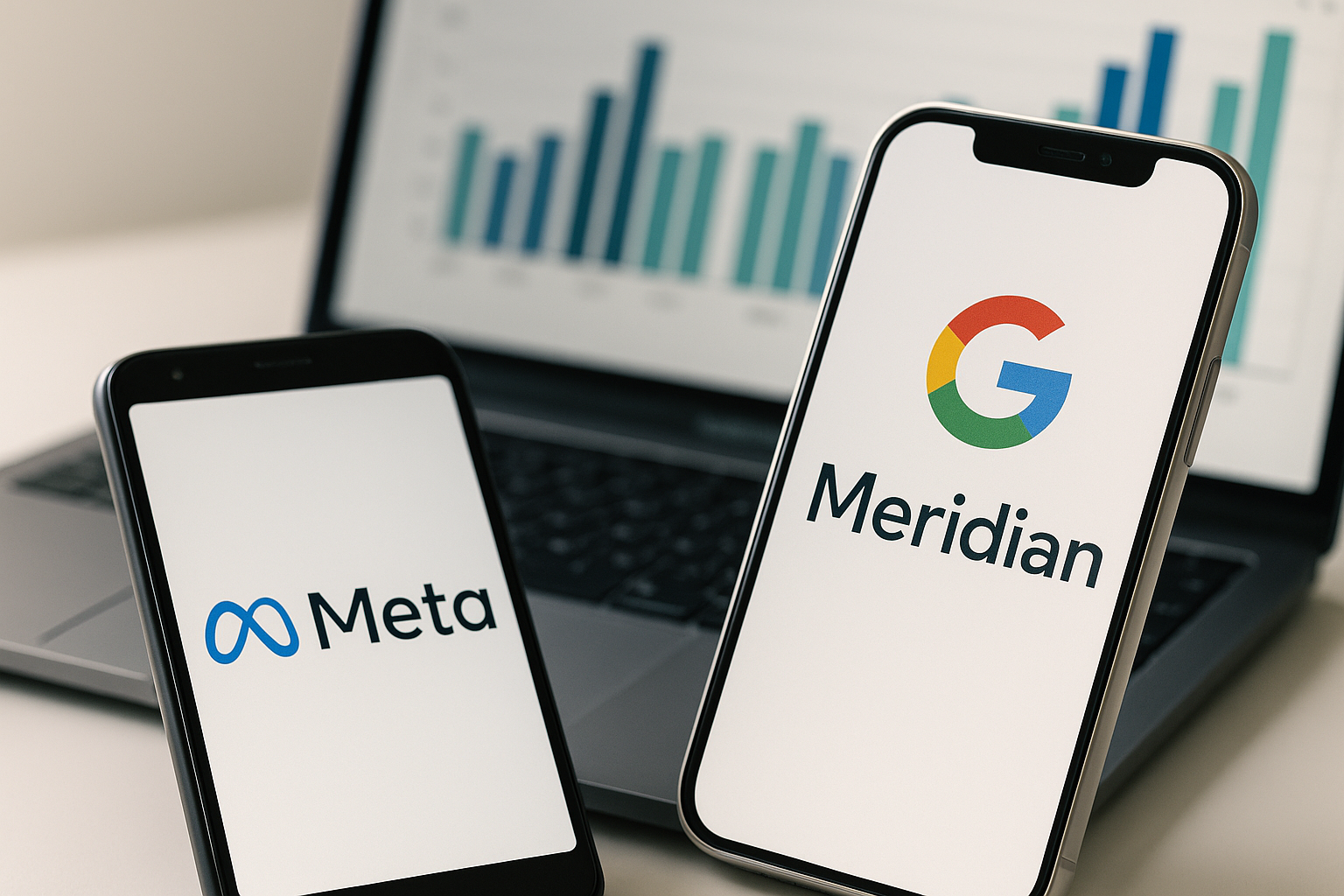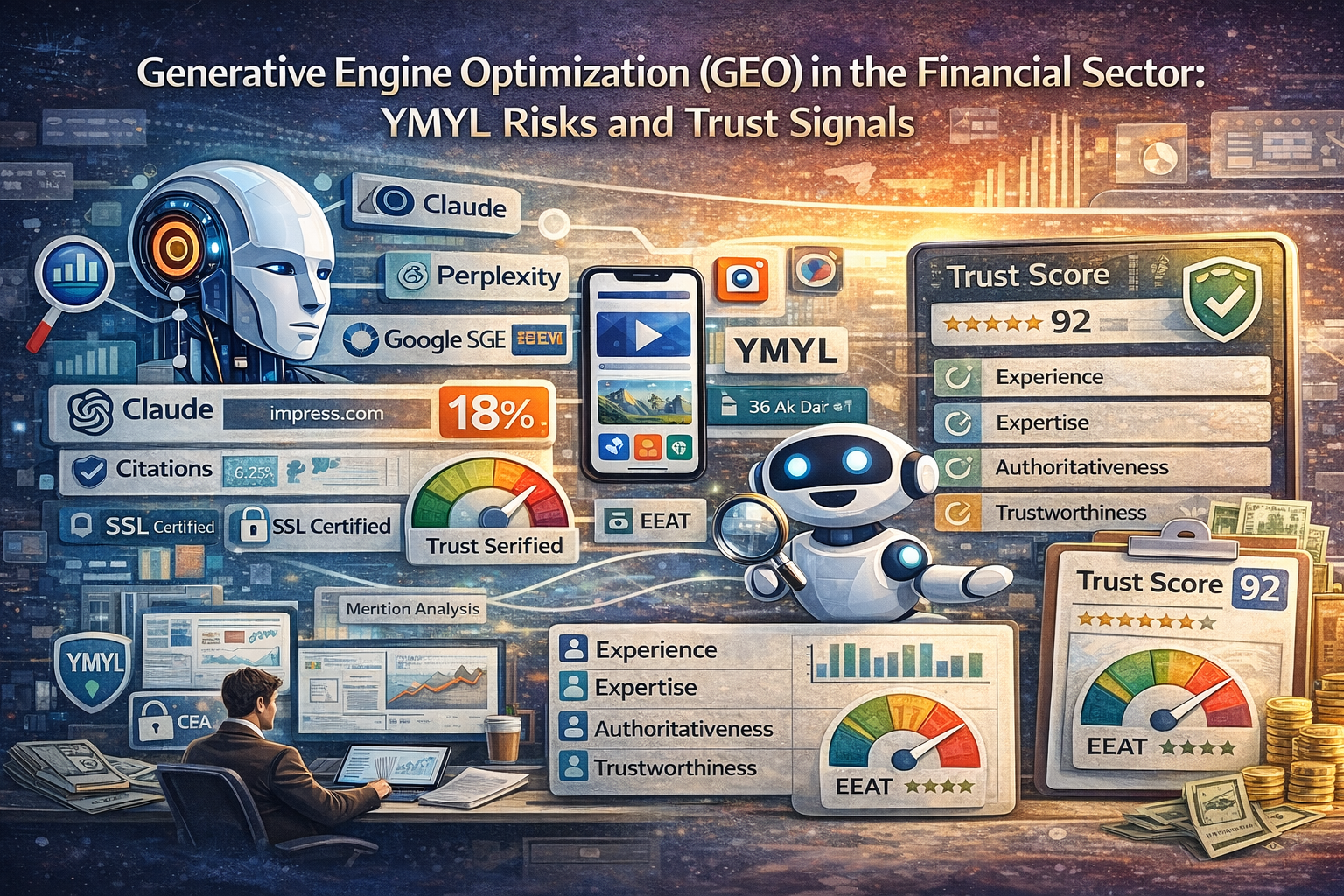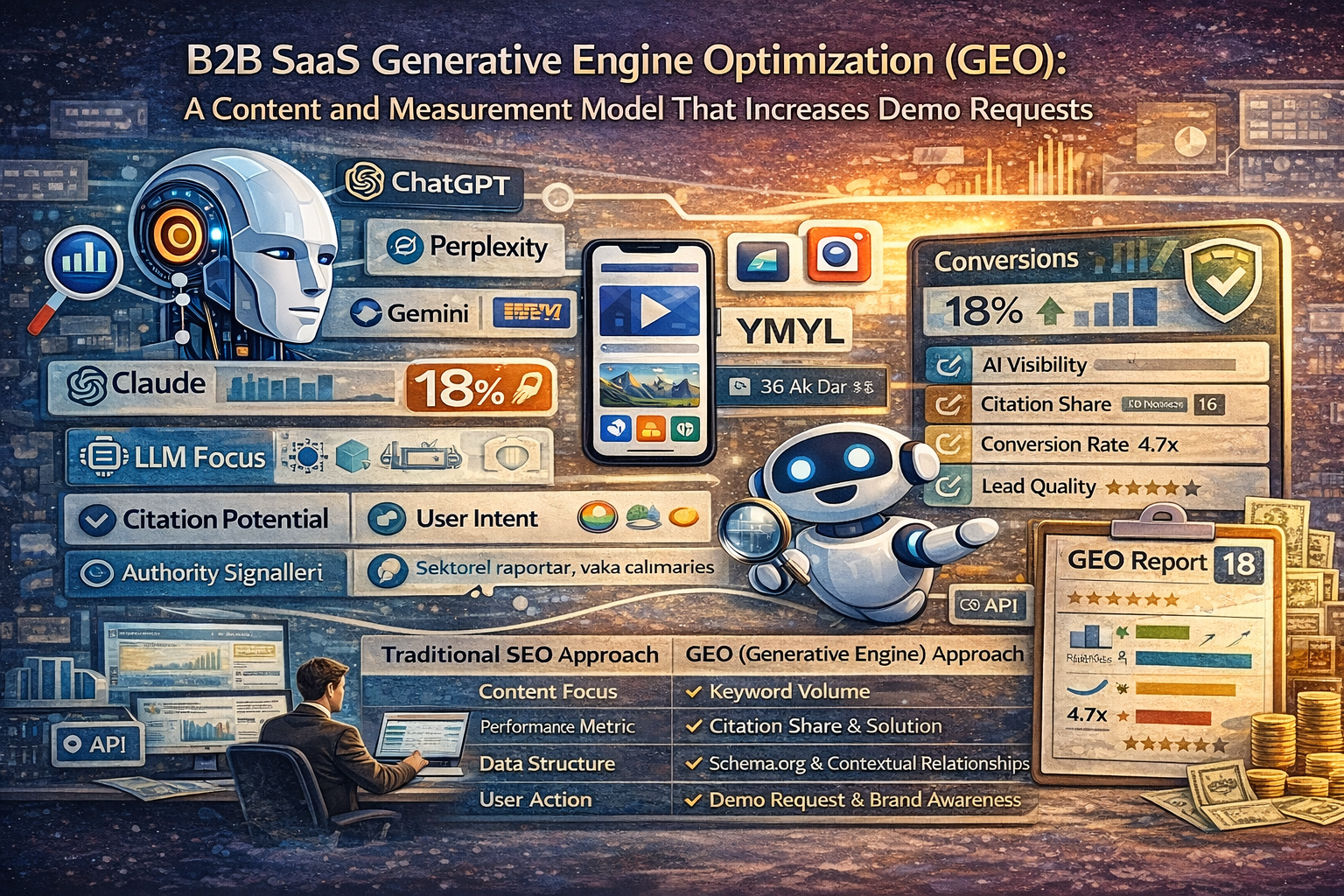
Merve Aslan
Jun 13, 2025Google Meridian MMM & Facebook (Meta) Robyn MMM: In-depth Analysis of Modern Marketing Modeling Tools

In today’s marketing landscape, data-driven decision-making is a key factor in strategic success. Marketing Mix Modeling (MMM) is a crucial analysis technique that helps measure the impact of advertising expenditures on sales and other key performance indicators (KPIs). Traditionally, MMM was accessible only to large corporations with significant budgets, but thanks to open-source solutions, it has become available to businesses of all sizes.
Google’s Meridian MMM and Meta’s Robyn MMM represent two advanced approaches to modern MMM. This article provides an in-depth comparison of these tools, examining their methodologies, use cases, advantages, and limitations.
What is Marketing Mix Modeling (MMM)?
MMM is a statistical regression technique that helps businesses understand how marketing activities influence sales, conversions, and traffic over time.
Its core functions include:
- ✔ Measuring the impact of advertising spend, promotions, seasonality, and economic factors on sales.
- ✔ Modeling adstock (delayed effects) and saturation (diminishing returns) to better reflect long-term marketing impact.
- ✔ Providing predictive insights for budget allocation and strategic planning.
Google Meridian MMM and Meta Robyn MMM offer different approaches to tackling these challenges.
Google Meridian MMM: In-Depth Review
Key Features & Methodology
Launched by Google in 2024 as an open-source project on GitHub, Meridian MMM introduces a Bayesian regression approach, making it highly flexible in handling uncertainty and incomplete data.
Key features include:
- ✔ Bayesian Regression: Provides probability distributions rather than fixed estimates, improving robustness with limited data.
- ✔ Adstock & Saturation Modeling: Captures how marketing spend accumulates over time and reaches diminishing returns.
- ✔ Geo-Level Analysis: Incorporates regional marketing data to evaluate local trends.
- ✔ Google Data Integration: Direct access to Google Search volume and YouTube reach data for more precise insights in digital advertising.
Use Cases & Advantages
Meridian is ideal for companies with strong in-house data science teams and those investing heavily in the Google ecosystem:
- ✔ Optimized for Google Ads & YouTube campaigns – making it particularly useful for brands reliant on these channels.
- ✔ Geo-specific modeling capabilities, helping businesses assess performance in different markets.
- ✔ Supports measurement-driven marketing cultures, where ROI and incrementality testing play a central role.
Limitations & Challenges
- ❌ High technical requirements: Requires expertise in data engineering and advanced statistical modeling.
- ❌ Executive-level communication challenges: Outputs can be complex, making it harder to generate clear business insights for non-technical stakeholders.
- ❌ Documentation & adoption hurdles: Being a new solution, documentation and user guides are still evolving.
Facebook (Meta) Robyn MMM: In-Depth Review
Key Features & Methodology
Meta’s Robyn MMM modernizes MMM by incorporating advanced data science techniques while maintaining accessibility for a wider audience.
Key features include:
- ✔ Prophet Integration: Automatically detects seasonality, trends, and holiday effects for more accurate forecasts.
- ✔ Ridge Regression: Reduces overfitting and improves generalizability.
- ✔ Hyperparameter Optimization: Uses Nevergrad for continuous model fine-tuning and performance enhancement.
- ✔ Adstock & Saturation Effects: Models how media spend drives sales over time and when additional spending loses efficiency.
Use Cases & Advantages
Robyn is particularly valuable for businesses looking to implement MMM with limited budgets:
- ✔ Open-source accessibility makes it an attractive choice for small and medium-sized businesses.
- ✔ Real-time optimization capabilities allow dynamic adjustments to marketing campaigns.
- ✔ Advanced visualization tools generate clear, easy-to-understand reports for marketing teams.
Limitations & Challenges
- ❌ Technical complexity: Requires proficiency in R programming, making implementation more challenging for non-technical users.
- ❌ Fixed media coefficients: Certain seasonality and campaign-based fluctuations may not be captured accurately.
- ❌ Limited documentation for advanced customization: Features like calibration and priors lack detailed examples, making full utilization difficult.
The Future of MMM Strategies
Both Google Meridian MMM and Facebook (Meta) Robyn MMM offer advanced solutions for measuring marketing effectiveness and optimizing media budgets. Meridian leverages Bayesian approaches and Google’s proprietary data sources to provide deep insights into digital campaigns, while Robyn offers a more flexible, real-time optimization framework through Prophet and Ridge regression.
The choice between these tools depends on factors such as data availability, marketing budget, and internal technical expertise. As machine learning and AI-driven modeling continue to evolve, both tools are expected to become even more sophisticated, making marketing strategies more dynamic and data-driven.
More resources

Generative Engine Optimization (GEO) in the Financial Sector: YMYL Risks and Trust Signals
With the integration of artificial intelligence technologies into the search engine ecosystem, the t...

B2B SaaS Generative Engine Optimization (GEO): A Content and Measurement Model That Increases Demo Requests
The digital marketing world is undergoing a major evolution from traditional search engine optimizat...

What Is a Source Term Vector?
A Source Term Vector is a conceptual expertise profile that shows which topics a website is associat...

